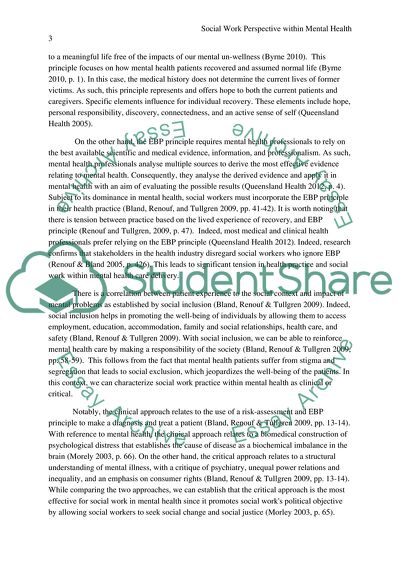Cite this document
(Social Work Perspective within Mental Health Essay Example | Topics and Well Written Essays - 1250 words, n.d.)
Social Work Perspective within Mental Health Essay Example | Topics and Well Written Essays - 1250 words. https://studentshare.org/sociology/1839879-social-work-perspective-within-mental-health
Social Work Perspective within Mental Health Essay Example | Topics and Well Written Essays - 1250 words. https://studentshare.org/sociology/1839879-social-work-perspective-within-mental-health
(Social Work Perspective Within Mental Health Essay Example | Topics and Well Written Essays - 1250 Words)
Social Work Perspective Within Mental Health Essay Example | Topics and Well Written Essays - 1250 Words. https://studentshare.org/sociology/1839879-social-work-perspective-within-mental-health.
Social Work Perspective Within Mental Health Essay Example | Topics and Well Written Essays - 1250 Words. https://studentshare.org/sociology/1839879-social-work-perspective-within-mental-health.
“Social Work Perspective Within Mental Health Essay Example | Topics and Well Written Essays - 1250 Words”. https://studentshare.org/sociology/1839879-social-work-perspective-within-mental-health.


